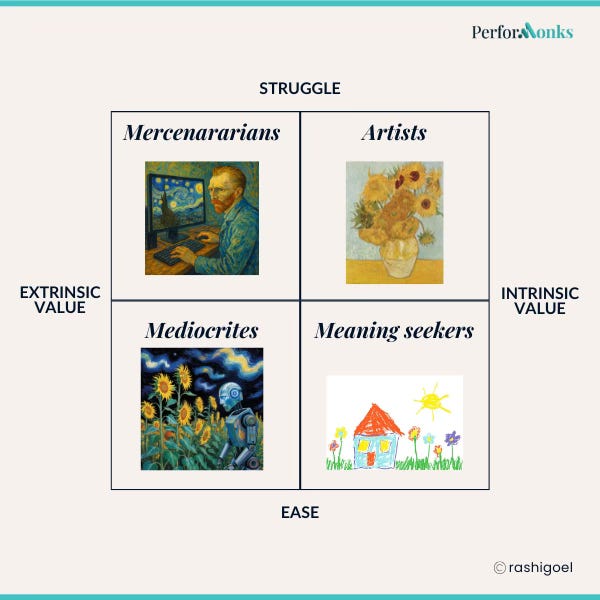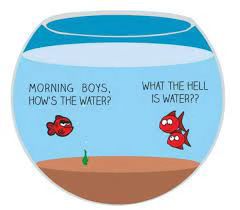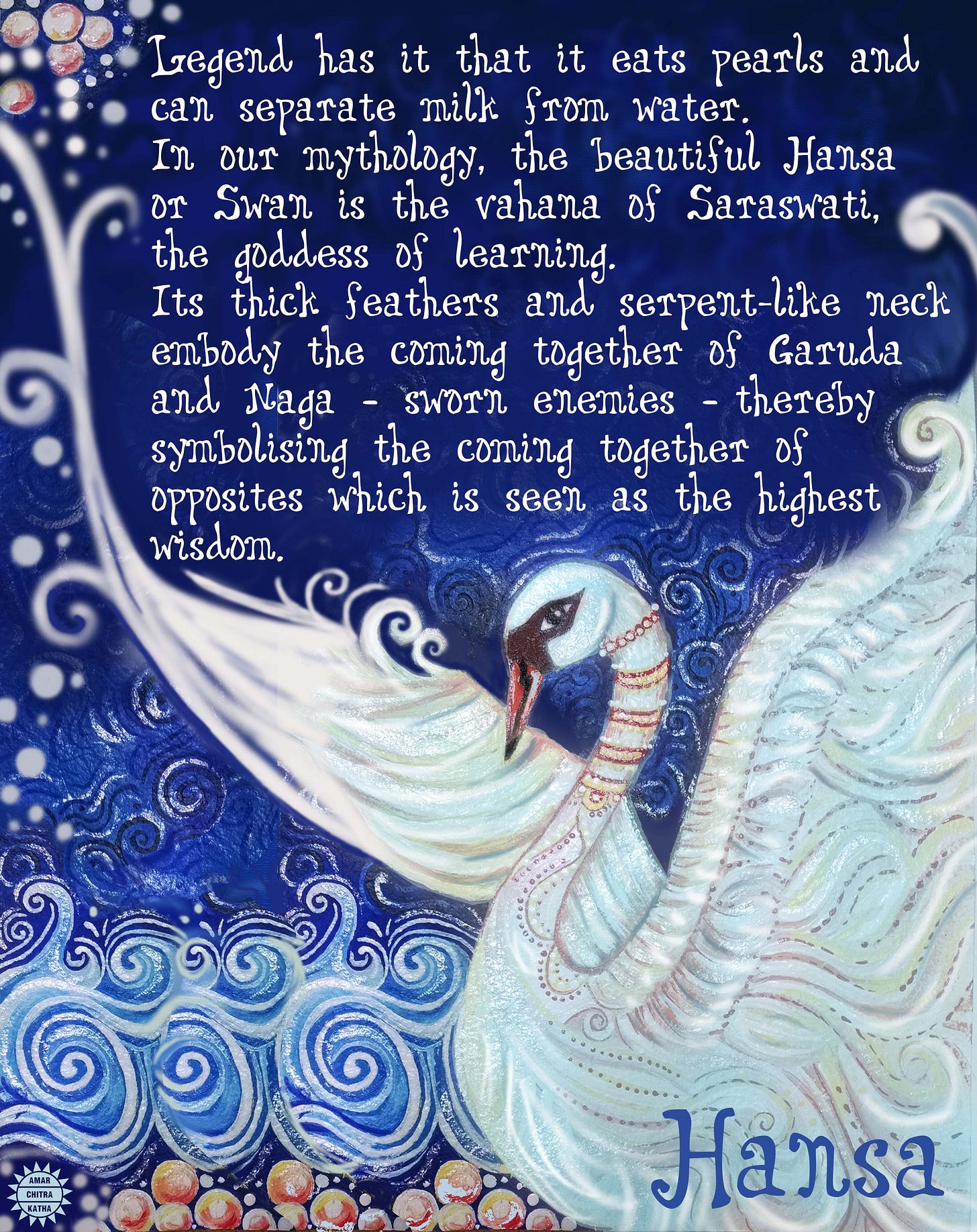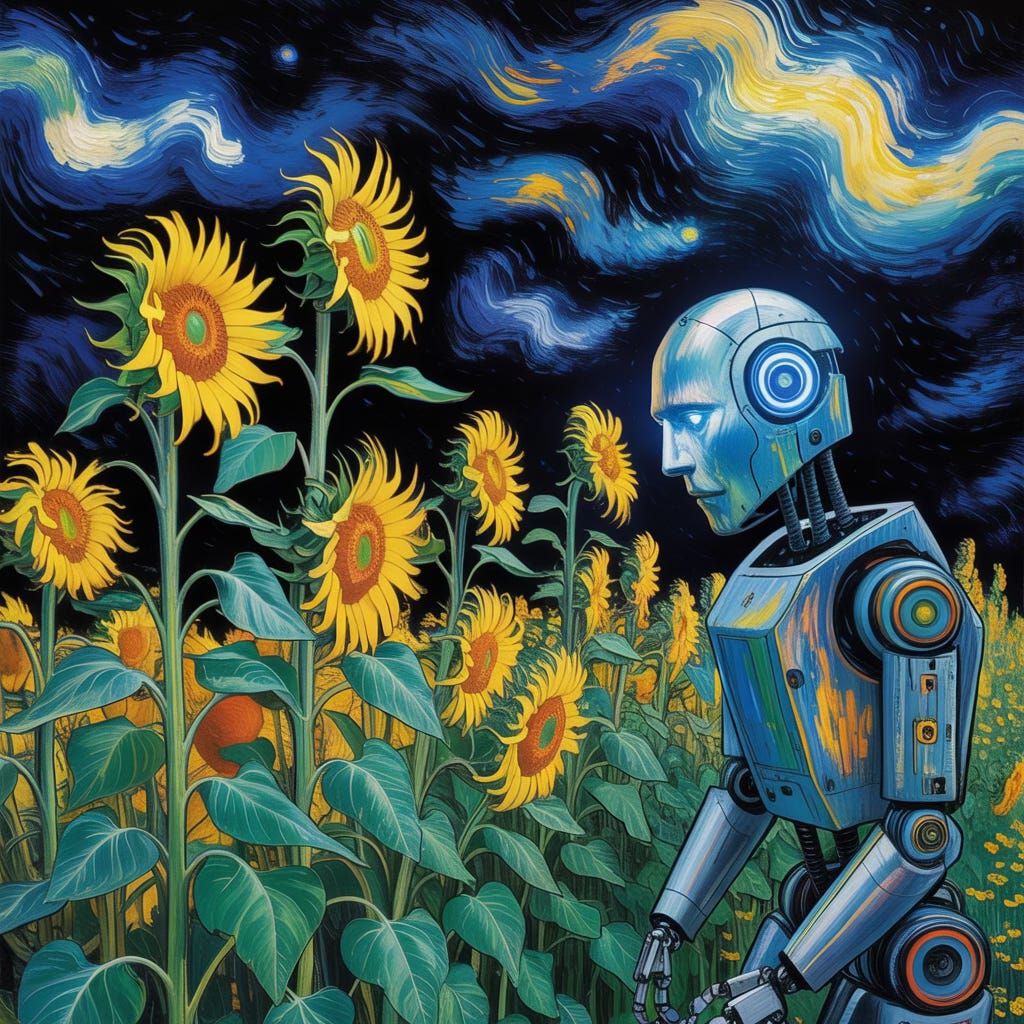Mediocrites and Meaning Seekers in the age of AI
In a post-AI world, the responsibility for keeping the mercenararians in check and the artists fed and clothed will lie with the mediocrites and meaning-seekers.
Practical ideas on marketing and self-mastery not taught B-schools. Performonks goes to 7,914 curious marketers and founders - join them here.
This is the third and last edition on the four types of workers in a post-AI world.
We saw the artists and mercenarians. Today, it’s time for meaning-seekers and mediocrites.
Meaning surrounds us
But who are meaning-seekers and mediocrites?
Both are net consumers of meaning. i.e. they consume more than they create.
Right now, there is a problem with their meaning consumption patterns.
Mediocrites have not spent the time to develop taste and discernment, they follow fads, or the loudest leader
Meaning-seekers get swayed by emotion
Both mediocrites and meaning-seekers are metaphorically blind
My predictions X Jony Ive and Open AI
Meaning surrounds us
David Foster Wallace began his famous commencement speech at Kenyon with this story.
Two fish were swimming in the ocean. Along came the village elder and asked, how’s the water today?
The young fish said, “What is water?”
Meaning is our water. We continue to make meaning every second of every day out of everything we see, hear, smell, touch and experience- it surrounds us so completely that it is invisible to us.
When meaning is mass-produced by AI, we will need to develop Hansa Buddi (Swan Wisdom).
Goddess Saraswati’s vahana (vehicle) is the Swan and metaphorically, if you give it a mixture of water and milk, it will drink the milk and leave the water. i.e. it has the wisdom to filter the bullsh*t from what’s important.
(I know I have completely mixed up the water metaphor here, but let’s keep rolling with it).
In a post-AI world, the responsibility for keeping the mercenararians in check and the artists fed and clothed will lie with the mediocrites and meaning-seekers.
But who are meaning-seekers and mediocrites?
Both are net consumers of meaning. i.e. they consume more than they create. They consume meaning.
The more they consume, the more algorithms create what they consume. If they consume hate, hate will go viral.
If they change what they consume, they can change the world.
Right now, there is a problem with their meaning consumption patterns.
Mediocrites have not spent the time to develop taste and discernment, they follow fads, or the loudest leader
Meaning-seekers are sentimental and get swayed by emotion
Mediocrites have not spent the time to develop taste and discernment, they follow fads, or the loudest leader
I don’t know if this story is true, but it makes the point well.
According to Renaissance art historian Giorgio Vasari, when word spread that Michelangelo had finally finished his masterpiece, David, a few Florentine dignitaries visited his workshop. One of these officials was Pier Soderini.
While everyone was congratulating David, Pier Soderini loudly announced that he felt David’s nose was too big.
Michelangelo didn’t agree, but to ensure the official did not become a nuisance in the future, Michelangelo took a chisel, gathered some marble dust in one hand, and climbed up the ladder.
He pretended to tap David’s nose and kept releasing the marble dust, so everyone thought he was making the nose smaller.
A beaming Pier Soderini, said, “See I was right, it looks better!”
Pier was the worst type of mediocrite.
They tend to be driven by ego, or they follow the latest fad, the loudest leader. They even take the easy path and follow the herd, just to fit in (extrinsic value).
Meaning-seekers are sentimental and get swayed by emotion
If both Pier’s and Michelangelo’s moms were witnessing this incident, both would be clutching their pearls, teary-eyed and filled with pride for what fine young men their sons have become.
Meaning-seekers are non-judgemental cheerleaders of the creations of their loved ones. Or those they admire (intrinsic value).
The proud mom who stores her kid’s dusty, yellowing school drawings.
Art lovers who fly across the world to visit museums and marvel at the genius behind each brush stroke.
And those of us who wept when Steve Jobs passed.
Are all meaning-seekers.
Both mediocrites and meaning-seekers suffer from metaphorical blindness
When AI manufactures knowledge and taste is purchased through algorithms, greater responsibility falls onto the shoulders of meaning-seekers and mediocrites.
Yet, both suffer from metaphorical blindness.
In the age of AI, what will they value? Will they celebrate an assembly line of democratic sameness, forgive lazy mediocrity and garland false heroes?
Will they like, Gandhari and Dhritrashtra, become blind to true value?
In the Mahabharata, King Dhritarashtra was born blind. Instead of becoming his sight, his wife Gandhari blindfolded herself in an act of solidarity with her husband.
Dhritarashatra was born blind. He carried this ‘injustice’ like a debt the world owed him. He refused to see even what was obvious. A bitter man, he turned his hundred sons (the Kauravas) into weapons of destruction.
Mediocrites wade through a mile-wide, inch-deep ocean of content. They are blinded by laziness, status quo, and dopamine addiction. They are like Dhritsrashtra.
But Gandhari chose blindness. She refused to see out of a misplaced sense of loyalty.
Meaning-seekers are blinded because they let their hearts rule and stop being conscience keepers. They are like Gandhari
Until they see, artists will go unnoticed and mercenararians will thrive.
In conclusion, I am more cynical than optimistic about what AI will do to trust, taste and discernment.
Yet, I want to be proven wrong because I know that when machines think for us, we rush to seek meaning in analogue stories that sprout between rusted metallic crevices.
S ome of what I predicted in the last two newsletters is happening.
I hope these are good signs.
In Artists in the Age of AI, I wrote that the more AI runs our world, the more we will value artistry - yesterday, Open AI acquired Jony Ive’s brain for $6.5 billion.
In Mercenararians in the age of AI, I mentioned that if mercenararians and artists partner, they could create magic- Sam Altman and Jony Ive plan to build AI companions to rival the iPhone.
The bottom line remains. AI will change what we find meaningful forever. Let’s hope we chase the right meaning in the right places. With or without AI.
Thanks for reading and I’ll see you next week.
More ways to connect
Connect on LinkedIn
Visit my Website
Subscribe to this Newsletter









